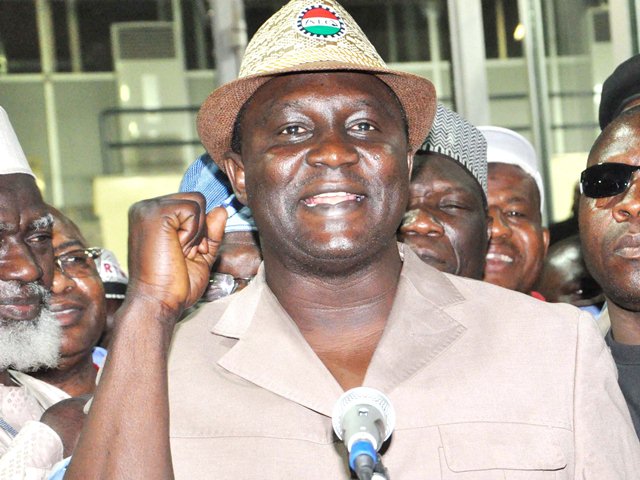The Nigeria Labour Congress has cautioned the Federal Government against missing the timeline for the implementation of the new national minimum wage for workers.
The NLC President, Ayuba Wabba, gave the warning on Monday during a pre-May Day symposium jointly organised by the NLC and the Trade Union Congress in Abuja.
Wabba said, “The organised labour will ensure that the timeline set by the Tripartite Committee on the Implementation of the National Minimum Wage is not altered.”
He added, “Workers, who create wealth, must also be well taken care of as we are not unmindful of the situation of the Nigerian workers, particularly with the increasing inflation in the land.
Also, Mr Boss Mustapha, the Secretary to the Government of the Federation (SGF), recently said the Federal Government was committed to ensuring that the new National Minimum Wage meets the present economic realities.
Speaking at a dinner and award night organised to mark the Nigeria Labour Congress (NLC) 40th Anniversary celebration he said the Federal Government is conscious of the need to bring wages to meet economic realities.
“I am confident that the outcome of the assignment would address the issue of social imbalance, inequality and the wide gap of poverty in the country.
President Muhammadu Buhari about six months ago inaugurated a 30-manTripartite National Minimum Wage Committee, calling on the members to come up with a fair and decent wage for Nigerian workers.
Buhari had said at the time that re-negotiation of a new national minimum wage had become imperative because the existing minimum wage instrument had since expired.
“We all know that the last minimum wage instrument has expired.
“It is in recognition of the need to ensure a fair and decent living wage that the Federal Government put in motion necessary mechanisms so that we can today inaugurate this large committee with a big task ahead of you.
“You are all aware that during the period following the increase in petrol pump price in May 2016, a technical committee was established to examine and make recommendations to government, the measures to be adopted to cushion the envisaged painful effects of the increase on workers and the Nigerian populace at large.













